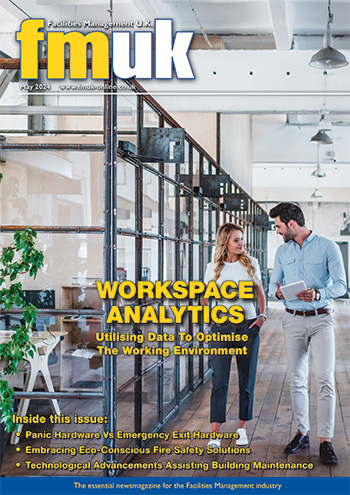UK Sleepwalking To A Retrofit Crisis Warns New Report
 Without a change in board attitudes the UK could face a building retrofit crisis, warns a new report.
Without a change in board attitudes the UK could face a building retrofit crisis, warns a new report.
The Role of Retrofitting our Non-Domestic Buildings in the Race to Net Zero, by Ridge and Partners LLP, the multi-discipline property and construction consultancy, shows that fewer than one in four public or private sector organisations is attempting to make their non-domestic premises more environmentally sustainable and just one in ten is assigning any kind of budget to retrofitting buildings to reduce their environmental impact.
According to the 101 property and facilities heads from leading UK organisations questioned for the report, the key problem is attitude of UK boards, both to their buildings and to those who manage them. For instance, despite 76% of organisations working towards net zero, 55% of facilities managers say their boards simply do not see retrofitting buildings as part of their net zero strategy. Indeed, 23% of the heads of buildings in the largest companies haven’t been involved in any net zero planning at all. A further 47% say even when they are involved, they are too removed from environmental discussions to be able to make a meaningful contribution.
The vast majority (86%) of organisations also underestimate the need to retrofit buildings to make them more energy efficient. Over a third mistakenly believe less than 39% of the UK’s current building stock will still be in use by 2050. Whereas in reality, it will be nearer twice this level at 70%.
Matt Richards, Partner at Ridge, comments: “Too many organisations appear to assume that come 2050 our existing building stock will have been replaced with more efficient new buildings, but this simply isn’t the case. The bulk of buildings we see around us will still be in use.
“As a result, vast swathes of UK organisations are sleepwalking towards a building crisis. At this rate, when we reach 2050, we'll have failed to reach the government's net zero target due to the majority of businesses occupying old, inefficient buildings that haven’t been retrofitted. If this problem is to be avoided, boards need to harness the expertise of their facilities teams, involve them in their strategic plans and empower them. That way a retrofit revolution can take place. “
Beyond board attitudes, the report identifies four further things which need to be addressed to improve the situation:
- How building estate’s budgets are set need to change. Over half (54%) of organisations set their building budgets based on the past year’s costs. This approach will never accommodate a major retrofit
- The government needs to take steps to make retrofitting more attractive. 52% of facilities heads believe VAT on refurbishments should be removed. Almost half (49%) say business rates discourage retrofit while over half call for financial incentives to encourage retrofitting of
- Retrofit myths need exploding. For instance, 45% of those in charge of buildings believe if the grid is carbon neutral, they don't need to worry about getting their buildings to net zero. 24% feel that retrofitting won’t make a big enough difference to their building’s carbon
- Organisations also need expert support. 31% fear retrofitting’s disruption, 29% lack the bandwidth for such a project and 25% don’t know how to make a business case for
Matt Richards concludes: “Our research has shown that most organisations have ambitious net zero plans. Combine these with spiralling energy costs and concerns about energy security and there couldn’t be a better time for the government and the UK’s public and private sector organisations to revisit retrofitting our non-domestic assets. A retrofit revolution needs to take place – and with the right support it could start now.”

The Role of Retrofitting our Non-Domestic Buildings in the Race to Net Zero report is free to download.

























































